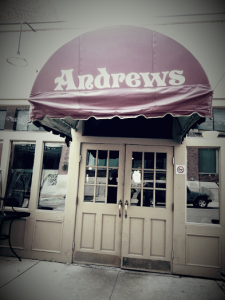Money talks. It says whether or not you care to spend a little more on organic products; it says where you buy your clothes; it says if you prefer a Starbucks holiday latte or a locally roasted drip coffee. Purchasing power is a small way individuals can make incremental impact on the businesses around them. What money can’t do, however, is talk to people – that’s where we come in.
Inspired by our first Challenge, talking to Detroit business owners to construct a narrative of the city’s neighborhoods and storefronts, I have made an effort to continue the sentiment of shopping local. Sometimes this comes as intentionally shopping at the Aldi on Mack and Alter rather than the one I pass on my way home from work in Southfield. It is a chain, but I am supporting the location, hoping that my money says “Detroit loves Aldi! Stick around!”. In these instances, when I am shopping at a chain store within the city limits rather than by my office in the suburbs, it is the money talking. The more enriching efforts, though, come when I do the talking.
During our first Challenge, it was an honor getting to talk to so many women and men who have set up shop in Detroit, ei ther through their own ambition or carrying on family tradition. Take Tom Andrews, who owns Andrews on the Corner. He took over the business from his grandfather, and the restaurant has been serving Detroit in some capacity or another for 97 years. Or Dijana Bucalo, a fashion designer who left her homeland of Bosnia during the Bosnian War in 1996 and now is designing costumes for various performance troupes around Detroit. With each conversation during the project I felt a growing connection to the city, to understanding its fabric and its humanity.
ther through their own ambition or carrying on family tradition. Take Tom Andrews, who owns Andrews on the Corner. He took over the business from his grandfather, and the restaurant has been serving Detroit in some capacity or another for 97 years. Or Dijana Bucalo, a fashion designer who left her homeland of Bosnia during the Bosnian War in 1996 and now is designing costumes for various performance troupes around Detroit. With each conversation during the project I felt a growing connection to the city, to understanding its fabric and its humanity.
Since completing the project I have tried to remain conversational in my visits to local stores, finding that it often makes me want to visit again once I make a personal connection. Upon talking to a waitress at the charcuterie and sandwich shop RUBBED, I discovered that they purchase much of their meat from Ftoni’s in Eastern Market. My dad has been going to Ftoni’s for his grilling needs for years now, and has become good friends with one of the butchers/ owners. So it was nice to hear that the butcher shop my family supports is also receiving support from a local business.
I also strolled into RUNdetroit recently hoping to quickly buy a new pair of shoes. I ended up trying on nearly a dozen pairs, all the while talking to one of the sales associates. I learned that the store has been on the now booming block of West Canfield even before Shinola moved in next door. We also talked about public education, as the sales associate mentioned he is studying to go into secondary education and was interested to hear about our current Challenge focused on parent engagement within the Detroit Public Schools.
Shopping locally can have a multitude of positive effects. Keeping as much revenue in the city as possible makes Detroit more self-sufficient and entices more businesses to come. Purchasing from a small business can mean supporting the livelihood of a family, rather than purchasing from a large chain and supporting a corporation. So yes, money talks, but it is also important for us to talk to each other as well, to understand the city we live in and the people who make it great.
#shopdetroit
